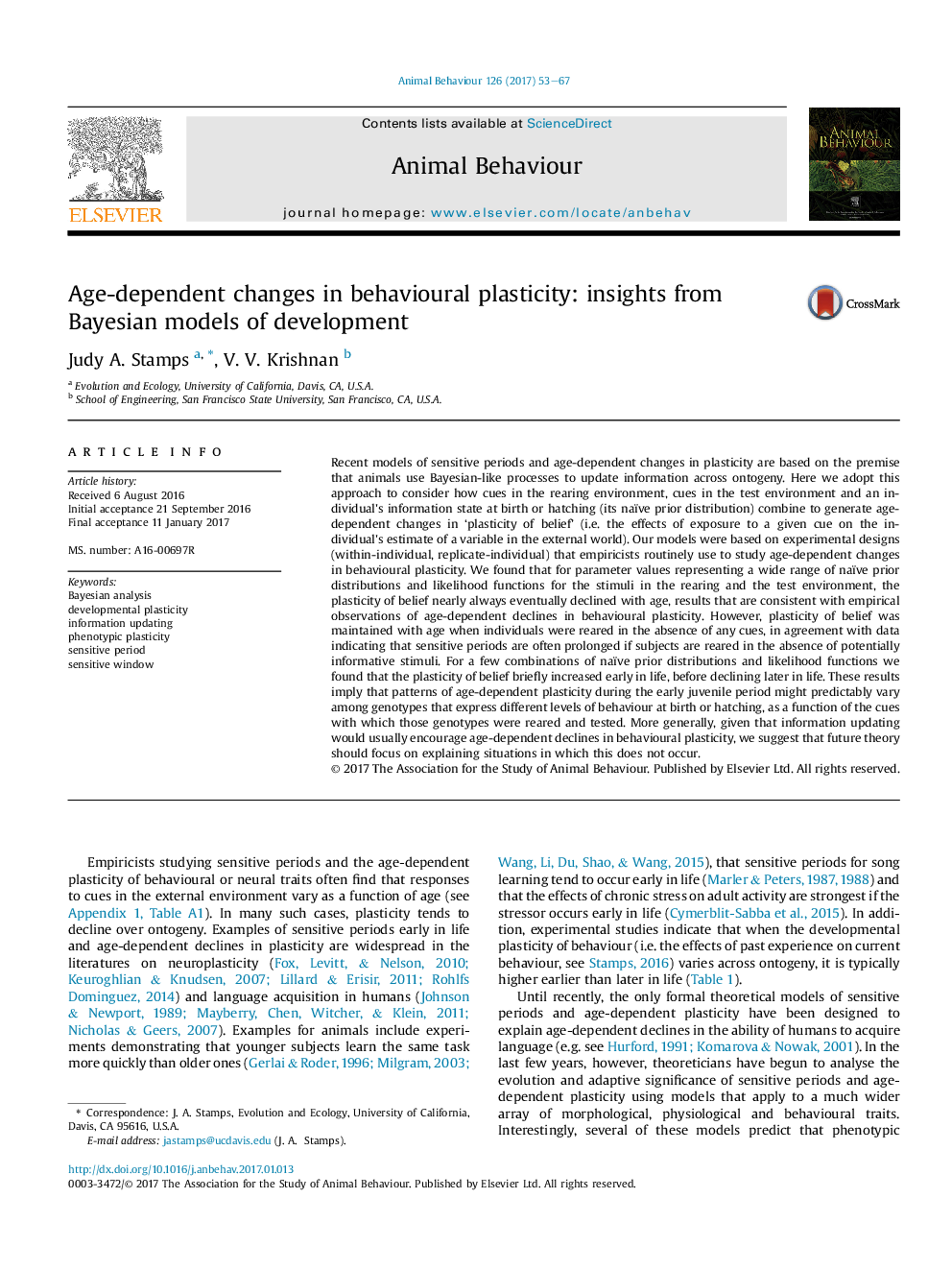| کد مقاله | کد نشریه | سال انتشار | مقاله انگلیسی | نسخه تمام متن |
|---|---|---|---|---|
| 5538514 | 1552202 | 2017 | 15 صفحه PDF | دانلود رایگان |
عنوان انگلیسی مقاله ISI
Age-dependent changes in behavioural plasticity: insights from Bayesian models of development
ترجمه فارسی عنوان
تغییرات وابسته به سن در پلاستیک رفتار: بینش از مدل های بیزی برای توسعه
دانلود مقاله + سفارش ترجمه
دانلود مقاله ISI انگلیسی
رایگان برای ایرانیان
کلمات کلیدی
تجزیه و تحلیل بیزی، انعطاف پذیری رشد به روز رسانی اطلاعات، ظرافت فنوتیپی، دوره حساس، پنجره حساس
موضوعات مرتبط
علوم زیستی و بیوفناوری
علوم کشاورزی و بیولوژیک
علوم دامی و جانورشناسی
چکیده انگلیسی
Recent models of sensitive periods and age-dependent changes in plasticity are based on the premise that animals use Bayesian-like processes to update information across ontogeny. Here we adopt this approach to consider how cues in the rearing environment, cues in the test environment and an individual's information state at birth or hatching (its naïve prior distribution) combine to generate age-dependent changes in 'plasticity of belief' (i.e. the effects of exposure to a given cue on the individual's estimate of a variable in the external world). Our models were based on experimental designs (within-individual, replicate-individual) that empiricists routinely use to study age-dependent changes in behavioural plasticity. We found that for parameter values representing a wide range of naïve prior distributions and likelihood functions for the stimuli in the rearing and the test environment, the plasticity of belief nearly always eventually declined with age, results that are consistent with empirical observations of age-dependent declines in behavioural plasticity. However, plasticity of belief was maintained with age when individuals were reared in the absence of any cues, in agreement with data indicating that sensitive periods are often prolonged if subjects are reared in the absence of potentially informative stimuli. For a few combinations of naïve prior distributions and likelihood functions we found that the plasticity of belief briefly increased early in life, before declining later in life. These results imply that patterns of age-dependent plasticity during the early juvenile period might predictably vary among genotypes that express different levels of behaviour at birth or hatching, as a function of the cues with which those genotypes were reared and tested. More generally, given that information updating would usually encourage age-dependent declines in behavioural plasticity, we suggest that future theory should focus on explaining situations in which this does not occur.
ناشر
Database: Elsevier - ScienceDirect (ساینس دایرکت)
Journal: Animal Behaviour - Volume 126, April 2017, Pages 53-67
Journal: Animal Behaviour - Volume 126, April 2017, Pages 53-67
نویسندگان
Judy A. Stamps, V.V. Krishnan,
